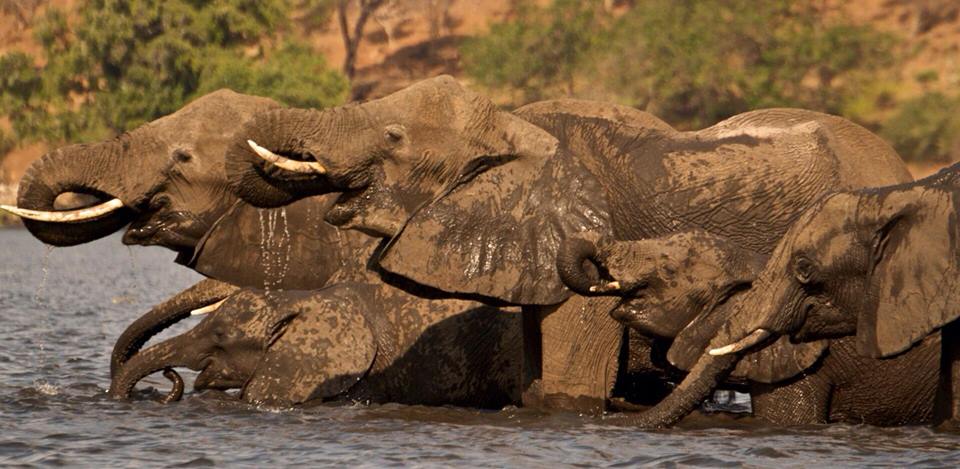To say the Botswana photo trip was a journey into a very different world is an understatement. The country is not as besieged by tourists as the more popular Kenya, so the wild world welcomed us with open arms as we entered a landscape barely touched by humans. We rented open Jeeps and set off on a Safari in the Chobe National Park and the Okavango Delta. As soon as we hit the unpaved road we found ourselves worlds away from civilization, both physically and mentally, instead of cars there was a family of elephants heading towards us. From a respectful distance we watched the majestic animals and waited until they deigned to move and let us pass.
It goes without saying that we did not waste this opportunity and forever immortalized the pachyderm beauties with our cameras. By the way, unless you are a professional photographer, it pays off to bring a wide angle lens to a Safari, be it a DSLR ultra-zoom or an 18-250. Botswana is an incredibly dusty country so frequent switching of lenses means lots of dirt on your camera chip. However, if you are a true Safari connoisseur, 120-300 mm or 200-400 mm lenses will be an excellent choice. Long-focus lenses are not very practical because of the haze and omnipresent dust.
We have encountered them on several more occasions because our camp was near a water hole frequented by every elephant in the neighborhood. In Africa, you have to adapt your daily routines to those of the animals, so we got up every day around four to watch their morning rituals, holding our breath in awe.
A couple of days after setting up camp we experienced another close encounter – a hungry lion strayed near our tents. Yet again, we found ourselves holding our breath, but this time, taking pictures was the last thing on anyone’s mind. Perhaps he was tempted by the smell of our dinner being cooked by our guides, who conjured up delicious meals including to-die-for deserts using only a piece of chicken wire stretched over a fire pit.
During our two weeks in Botswana we snapped not only all of Africa’s big five, but also more than forty other animal species, incredible sunsets and picturesque huts of the native tribes. Organizing a trip to Botswana may be challenging, but it is definitely worth it.

